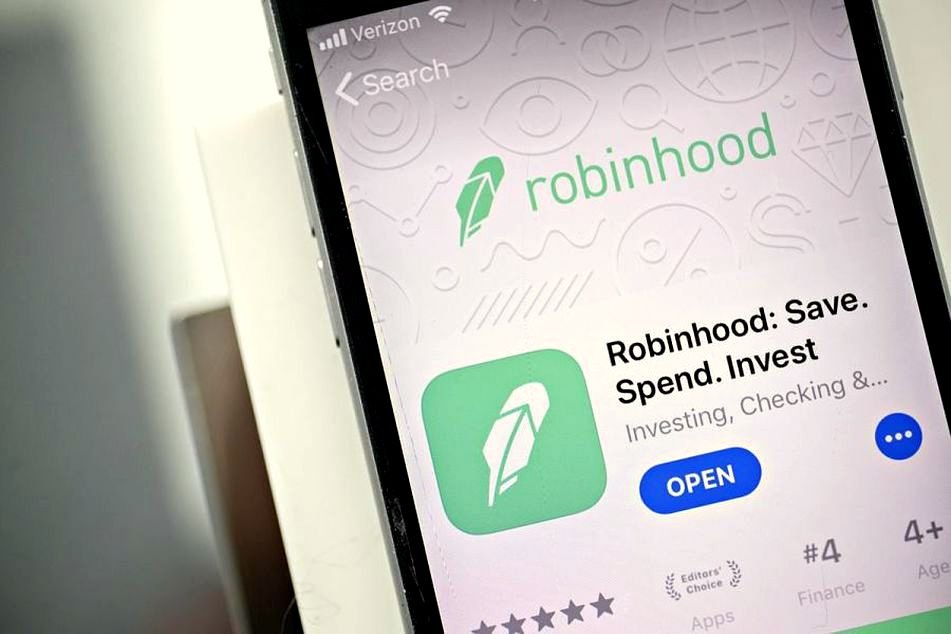Platform Robinhood withdraws its application to become an official bank : Robinhood, the popular online trading platform known for its commission-free stock trading and accessibility, recently made headlines by withdrawing its application to become an official bank. The decision to backtrack on their banking ambitions raises questions about Robinhood’s future strategies and the potential impact on its user base. In this article, we delve into the reasons behind Robinhood’s withdrawal and analyze the implications of this significant move.
Platform Robinhood withdraws its application to become an official bank

Platform Robinhood withdraws its application to become an official bank
The Bank Charter Ambition:
Robinhood’s pursuit of a banking charter was a strategic move aimed at expanding its suite of financial services. By becoming a bank, the platform aimed to offer additional features like direct deposit accounts, savings accounts, and debit cards. This would have allowed Robinhood to provide a more comprehensive and holistic financial platform, potentially attracting a broader customer base and increasing user engagement.
Reasons for Withdrawal:
Robinhood’s decision to withdraw its bank application stems from various factors. One primary reason could be the increased scrutiny and regulatory challenges faced by fintech companies seeking to enter the banking industry. The complexities and stringent requirements involved in obtaining a banking charter may have led Robinhood to reassess the feasibility and potential roadblocks associated with its banking aspirations.
Regulatory and Compliance Concerns:
Becoming a bank would have subjected Robinhood to a new set of regulatory and compliance obligations. Traditional banking regulations, such as capital requirements, risk management protocols, and consumer protection laws, can be burdensome for fintech companies to navigate. The decision to withdraw the bank application could indicate that Robinhood is prioritizing its core business model and focusing on areas where it has already established a strong presence.
Shift in Strategic Focus:
Robinhood’s decision to withdraw its bank application may also reflect a strategic shift in its focus and priorities. The platform has experienced tremendous growth and success as a trading platform, revolutionizing the accessibility of investing for retail investors. By withdrawing the bank application, Robinhood may be doubling down on its core strengths and aiming to further solidify its position as a leading online brokerage platform.
User Trust and Perception:
Robinhood’s image has faced some challenges recently, including controversies related to its trading practices and the GameStop saga. These incidents may have influenced the decision to withdraw the bank application to avoid additional scrutiny and potential reputational risks. Maintaining user trust and confidence is crucial for Robinhood’s continued success, and withdrawing the bank application might be a strategic move to protect its brand and address concerns raised by regulators and users.
Future Opportunities:
While Robinhood has abandoned its banking ambitions for now, it does not imply a lack of potential for future expansion or diversification. The platform may focus on enhancing its existing offerings, improving user experience, and expanding its product lineup within the realm of brokerage and investment services. Robinhood’s decision to withdraw its bank application does not preclude the possibility of exploring partnerships or collaborations with established banking institutions to offer more comprehensive financial services.
Conclusion:
Robinhood’s withdrawal of its bank application reflects the challenges and complexities fintech companies face when venturing into the banking industry. Regulatory scrutiny, compliance obligations, and strategic considerations likely played a role in this decision. Nevertheless, Robinhood’s core strength lies in its innovative approach to democratizing investing, and the platform will likely focus on refining its existing services. The withdrawal of the bank application should be seen as a recalibration of priorities rather than a setback, as Robinhood continues to evolve within the rapidly changing landscape of online trading and financial services.